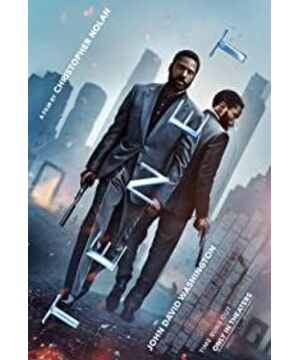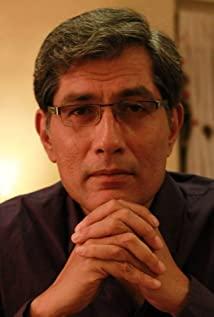By Ai Chen
If you want to use one sentence to describe the audience's feeling after watching "Creed", "Children, do you have a lot of question marks?" should be more appropriate; if you want to use another sentence to describe this feeling, "I don't want too much, I think it must be It's me who got it wrong and got it wrong" is also a perfect match. The propaganda said that "Creed" is "high-energy throughout the whole process" and "challenging IQ"; fans said that "Creed" is a "magical film", "explosive", and "brilliant"; passers-by said that "Creed" "burns the brain" and "looks dumbfounded" , "Intelligence is not enough". The resulting discussion lasted for nearly a week.
So is the Creed really hard to understand? I don't think, for me, "Creed" is first a secret agent movie, then a sci-fi secret agent movie, and finally a sci-fi secret agent movie directed by Nolan. According to the focus of watching movies like this, I gave "Creed" 4 stars in the first brush; after the second brush, the look and feel remained the same. The specific reasons are as follows:
1. Story content
In my opinion, the core plot of "Creed" is just six words: "Beat the bad guys and save the world." The audience has watched similar plots countless times in various movies, whether it is 007 or Mission Impossible, whether it is the United States Girls or Ultraman, there are a group of people who try their best to destroy the world for one reason or another, while another group of people try to save the world for one reason or another.
On this basis, to think of something a little different, it is nothing more than to consider these aspects: why save (destroy), who will save (destroy), when to save (destroy), and where to save (destroy) , and how to save (destroy). Applying these questions to "Creed", is the plot much clearer? At this time, if you look at any descriptions like "full-time high-energy, IQ-challenging, brain-burning movies", you will know that they are just propaganda.
Therefore, if it is "confused" about the content of the "Creed" story, I think there are two possibilities. One is the misunderstanding caused by the translation, and the other is that the amount of information received has not been digested in time. In terms of translation, what impressed me the most was that the male protagonist gave the female protagonist a mobile phone and asked her to leave a message when she felt in danger. There was a word there, and the translation was "surveillance video", which confused many people. What about the surveillance video? Combined with what was mentioned in the previous plot, "Each of us can talk to the future, bills, emails, messages, the only difference is whether we get a reply or not", I think this word should have a similar meaning.
Information indigestion is the main reason. "Creed" is a film with a tight rhythm and a rich content. In two and a half hours, the audience has not had time to remember a message, and the next message will come immediately. With the impression that "Nolan movies burn the brain", it is easy to draw the conclusion that "Creed" also burns the brain.
In fact, it's not really "not enough IQ", it's just "not enough short-term memory". It's like you, who was a scumbag in high school, kept copying the teacher's blackboard writing on the blackboard in class, but the teacher had already erased and wrote a lot of new things before you finished copying. Is it the same thing? The easiest solution is to flash the movie again and fill in the missing information.
2. Concept setting
Compared with other spy-themed movies, the most important part of "Creed" is that it adds the sci-fi setting of "time reversal" and makes a corresponding visual presentation. This setting is of course interesting and useful. It allows the plot to have multiple branches, whether it is time or characters, intersecting and influencing each other. This also adds a certain degree of difficulty to understanding.
In this case, my solution is to divide time into three types: past, present, and future. Correspondingly, people and things on the timeline are also divided into past, present, and future. Take the scene of the airport corridor in "Creed" as an example. The scene at that time can be summed up from the perspective of the protagonist: I saw that I was hitting me. It is estimated that some people will be dumbfounded just reading these words, let alone watching a movie. But as long as a clear point in time, and use this as a benchmark to distinguish where each "I" came from, how it came, and for what purpose, it is not difficult to understand.
Some viewers feel that "Creed" is really brain-burning because they do not understand the setting principle of "time reversal", and do not know what "entropy" is and what it means. Actually it is not necessary. On the one hand, whether you understand the various terms and concepts in "Creed", I don't think it affects your understanding of the movie. That is a setting, a rule set by the movie, and it is good to accept it by default. I will ask you, do you remember the value of the acceleration of gravity? Remember how fast sound travels in air? Do you remember Newton's laws? The most basic physical concepts have been forgotten, and the setting of "time reversal" is still unscientific, what is the principle, how to realize it, etc. Isn't this behavior even more unscientific? I really want to find out, should go to the science and education channel, not the cinema.
On the other hand, the so-called setting, whether it is time, space, or other, is just a means in the film. It doesn't matter what the means itself is, what matters is what it triggers. For me, the greatest significance of "Time Reversal" is that it presents an abstract concept in a concrete way. This feeling is like seeing the appearance of Quicksilver when I saw the appearance of Quicksilver, the beauty of slowness and fastness; and the shock of the figuration of the alien circular text in "Arrival"; and the "Matrix" in "The Matrix" , "Bullet Time" is amazing. It is true that Nolan's presentation of "time reversal" in "Creed" is not comparable to these, but I think this attempt is very valuable.
The director's style
I like to experiment with different narrative structures, which is one of my understandings of Nolan's style. In other words, Nolan is a director who "doesn't like to tell a good story". He can follow the finished story in an orderly manner, he can always change tricks, break the story, and then recombine a new way of expression, such as juxtaposed, circular, or even irregular expression to tell the story. listen. "Memento" is a combination of "fragmented flashbacks and interludes"; "Inception" is a stepped linear structure, one layer after another; "Dunkirk" is a parallel process of sea, land and air; when it comes to "Creed", through The setting of "time reversal" has become a ring structure again.
From the perspective of perception alone, if the film uses a flat and straightforward way, of course, it will be less stressful to understand, but correspondingly, the audience's expectation will be close to zero, and there will be no surprises in the viewing process; and Nolan's treatment, Make the viewing process interesting, you don't know what's going to happen next moment, and you're looking forward to something a little bit different. "Memento" and "Inception" are the same, and so is "Creed". The audience not only has to keep their eyes on the screen throughout the whole process, but also keep their heads spinning.
All in all, "Creed" combines spy films and sci-fi elements in the content of the story, so that the regular content has a different look and feel; in the concept setting, the "time reversal" setting is used to enrich the plot. And interesting, it is worth watching twice and three times; and at the production level, through the real shooting of big scenes such as bombing the plane, the visual experience is also very rewarding; not to mention the handsomeness of Pattinson and the beauty of Gao Mei. Although it is not Nolan's best work, it is by no means a water film. Summarized in the words of a friend: "Think about it, you can enjoy the fun of light and shadow for only a few dozen yuan, and praise the god of technology!"
View more about Tenet reviews











